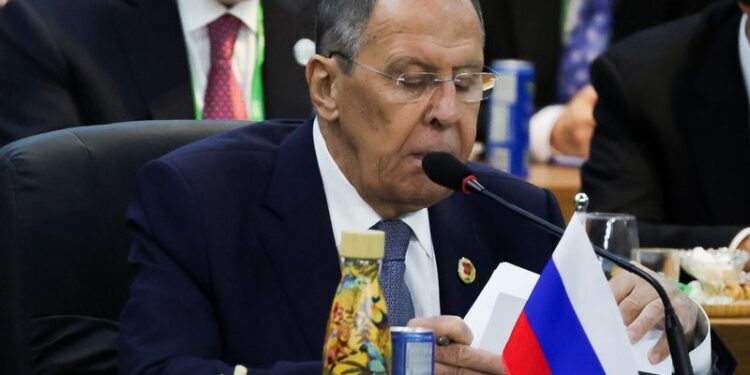VIENNA (Reuters) -Russian Foreign Minister Sergei Lavrov and U.S. Secretary of State Antony Blinken could face off over the war in Ukraine on Thursday at an annual meeting of the Organization for Security and Cooperation in Europe in Malta.
Ukraine will be the dominant political issue at a meeting that is due to formally approve last-minute agreements reached on issues including senior staff positions at the security and rights body where Western powers has often accused Russia of flouting human rights and other international norms.
It is Lavrov’s first trip to a European Union member state since Russia began its full-scale invasion of Ukraine in February 2022.
Lavrov and Blinken, whose term in office ends next month, are not scheduled to have a meeting. Since Russia’s war in Ukraine began, they have occasionally attended the same international gatherings but their interactions have been limited.
In March 2023 on the sidelines of a G20 meeting in New Delhi, they had an unscheduled encounter that the Russian foreign ministry said lasted less than 10 minutes.
Blinken later told a press conference he had told Lavrov to engage in diplomacy. Lavrov told Russian media the meeting was constructive but that he heard nothing new on U.S. positions.
The OSCE gathering of foreign ministers and other officials from 57 participating states in North America, Europe and Central Asia is overshadowed by the imminent return to the White House of Donald Trump, whose advisers are floating proposals to end the war in Ukraine that would cede large parts of the country to Russia.
With Trump due to take office in just over a month, Western powers plan to reiterate their support for Ukraine and Russia is likely to renew its criticism of the OSCE, which Lavrov said last year was “essentially being turned into an appendage of NATO and the European Union”.
VETO POWERS
The OSCE is the successor to a body set up during the Cold War for the east and west to engage with each other. In recent years, and especially since Russia invaded Ukraine, Moscow has used what is in effect a veto each country has to block decisions.
This year, Armenia and Azerbaijan blocking the OSCE budget, diplomats say, over issues related to their conflict in the mountainous territory of Nagorno-Karabakh.

Diplomats say a deal was reached this week to fill four senior OSCE positions including that of secretary general, which will be taken up by Turkey’s Feridun Sinirlioglu, who was foreign minister in a caretaker government in 2015.
The most important annual decision at the OSCE – which country will next hold its annually rotating chairmanship – has long been settled. Finland will hold it for the 50th anniversary of the Helsinki Final Act that lay the foundation for the current OSCE.







